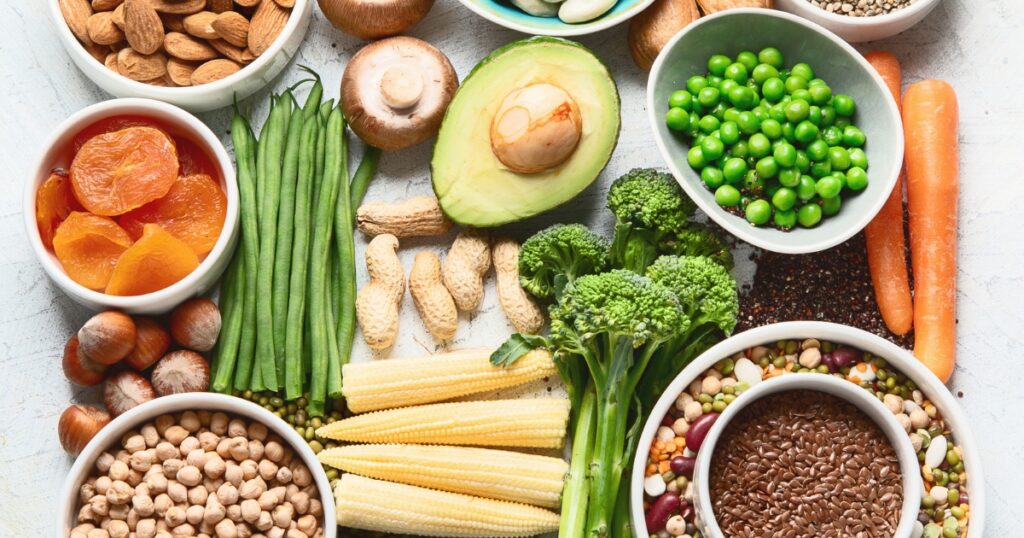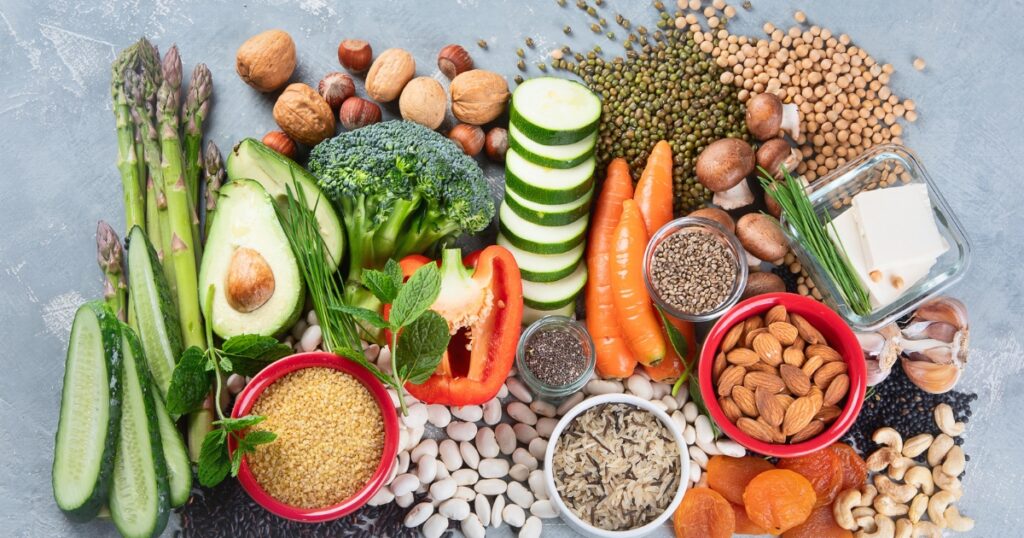Power Up with Plant-Based Protein Powder for Your Health

Power up your health with plant-based protein powder! Discover its benefits, types, and how it supports muscle growth, weight loss, and digestion.
Introduction
Are you ready to take your health to the next level? Plant-based protein powder is rapidly gaining popularity, and for good reason! With its impressive health benefits, eco-friendliness, and suitability for various diets, it’s no wonder people are swapping their whey protein for plant-based options. But what makes plant-based protein powder so special? Let’s dive deep into the benefits and explore why it might be the perfect addition to your lifestyle.
What Is Plant-Based Protein Powder?
Plant-based protein powder is derived from various plant sources, such as peas, soy, hemp, rice, and other legumes or grains. Unlike whey or other animal-based proteins, plant-based powders are often easier on the digestive system and come packed with additional nutrients like fiber and vitamins. With these benefits, it’s quickly becoming the go-to for vegans, vegetarians, and anyone looking for a healthy protein alternative.

Why Choose Plant-Based Protein?
When it comes to protein choices, why go plant-based? First, it’s better for your health. Plant-based proteins contain a host of nutrients that animal-based proteins often lack, such as fiber and antioxidants. Plus, plant-based protein can have lower levels of cholesterol and saturated fats.
Environmentally, plant-based proteins require less water and land to produce, and they generate fewer greenhouse gases compared to traditional animal farming. Ethically, many choose plant-based proteins to avoid contributing to factory farming and animal cruelty. So, it’s not just a win for your body—it’s a win for the planet too!
Types of Plant-Based Protein Powder
There are many different types of plant-based protein powders, each with its unique benefits:
Pea Protein: A great option for those with soy allergies, it’s rich in muscle-building amino acids.
Soy Protein: A complete protein that has all essential amino acids, making it ideal for muscle repair.
Hemp Protein: Known for being nutrient-dense and rich in omega-3 fatty acids.
Rice Protein: Easily digestible and hypoallergenic, perfect for sensitive stomachs.
Blended Plant-Based Protein: A mix of several sources to ensure a complete amino acid profile.

Key Nutrients in Plant-Based Protein Powders
Besides protein, plant-based powders offer a variety of nutrients like:
Protein content: Ranges from 15 to 30 grams per serving, depending on the type.
Fiber: Aids in digestion and keeps you fuller for longer.
Vitamins and minerals: Such as magnesium, iron, and B vitamins, which are critical for energy production.
Essential amino acids: Some plant-based powders offer a complete amino acid profile, necessary for muscle repair and growth.
How Plant-Based Protein Supports Muscle Growth
You might be wondering—can plant-based protein really help with muscle building? Absolutely! While it’s true that some plant-based proteins are not complete (lacking certain amino acids), many blends and certain types like soy are complete proteins. Combine that with the right diet and exercise, and your muscles will get all the support they need to grow strong and lean.

Plant-Based Protein for Weight Loss
Protein isn’t just for muscle-building; it’s a fantastic tool for weight loss. Plant-based protein helps keep you feeling full longer, curbing cravings and reducing unnecessary snacking. Plus, it helps in maintaining lean muscle mass, which boosts metabolism and aids in calorie burning. Incorporating plant-based protein into your daily routine can be an excellent way to manage your weight.
Digestive Health and Plant-Based Protein
Do you suffer from digestive issues after consuming traditional protein powders? Many people experience bloating and discomfort with whey due to its lactose content. Plant-based protein powders, being naturally lactose-free, are much gentler on the stomach. This makes them a top choice for those with lactose intolerance or sensitive digestion.
Ideal Uses of Plant-Based Protein Powder
The versatility of plant-based protein powder is one of its best qualities! Here are a few ways to incorporate it into your diet:
In Smoothies: Blend it with fruits, veggies, and almond milk for a nutrient-packed smoothie.
Baking: Add it to pancakes, muffins, or energy bars to give your baked goods a protein boost.
Shakes: Mix with water or your favorite non-dairy milk for a quick post-workout shake.
Post-workout recovery: Perfect for refueling muscles and aiding in recovery after exercise.

Common Misconceptions About Plant-Based Protein
Let’s clear up a few myths:
Myth 1: Plant protein isn’t as effective – False! When utilized accurately, plant proteins can be similarly essentially as powerful as animal-based proteins for building muscle and advancing wellbeing.
Myth 2: It tastes bad – Not anymore! Today’s plant-based powders come in a variety of delicious flavors.
Myth 3: It’s expensive – While some premium brands may be pricier, there are plenty of affordable options available.
Choosing the Right Plant-Based Protein Powder for Your Needs
When selecting a plant-based protein powder, consider:
Organic vs. non-organic: Organic powders are free from pesticides and GMOs.
Added sugars and fillers: Look for brands that keep it clean with minimal added ingredients.
Allergen considerations: If you have allergies, check for soy or nut-based proteins.
How to Incorporate Plant-Based Protein into Your Diet
For beginners, start with small servings and gradually increase. Add it to your morning smoothie, oatmeal, or post-workout shake. Be mindful of the protein content in the rest of your meals to avoid overconsumption.
Plant-Based Protein vs. Whey: A Nutritional Showdown
Plant-based protein holds its own against whey:
Protein content: Comparable amounts of protein per serving.
Digestibility: Plant-based proteins are easier to digest for many people.
Environmental impact: Plant-based protein has a much smaller carbon footprint.

The Future of Plant-Based Protein Powders
The plant-based protein market is booming, and the innovation in this space is exciting! Expect more diverse sources of protein, like algae and fungi, to become mainstream. As consumer demand grows, plant-based protein will likely become even more accessible and affordable.
Conclusion
Plant-based protein powder is not just a trend; it’s a powerful tool for anyone looking to improve their health, build muscle, or contribute to a more sustainable world. With so many options and benefits, now is the perfect time to power up your diet with plant-based protein.
FAQs
Is plant-based protein powder safe for kids?
Yes, it’s safe, but always check the label for ingredients and consult a pediatrician for appropriate dosage.
How much protein should I consume daily?
The recommended amount varies, but generally, adults need around 0.8 grams of protein per kilogram of body weight.
Can plant-based protein powder cause bloating?
Some individuals may experience bloating, but it’s usually mild and depends on the specific ingredients in the protein powder. For example, certain fibers or sugar alcohols used in the powder can cause digestive issues for sensitive people. If you notice bloating, try switching to a different plant-based protein type, such as rice or pea protein, which are generally gentler on the stomach.
Is it okay to replace meals with protein shakes?
While protein shakes are great as a snack or post-workout supplement, they shouldn’t completely replace whole meals on a regular basis. Whole foods provide a wider range of nutrients, including essential vitamins, minerals, and fibers that you may not get from a shake alone. If you do opt for a shake as a meal replacement occasionally, make sure it’s packed with other nutrients, such as fruits, veggies, and healthy fats.
Does plant-based protein powder contain all essential amino acids?
Some plant-based proteins, like soy and pea protein, contain all nine essential amino acids, making them a complete protein. Nonetheless, others like rice protein might be deficient in at least one fundamental amino acids. The good news is that many plant-based protein powders are blended to ensure you get a full amino acid profile, offering a complete protein source similar to animal-based options.




